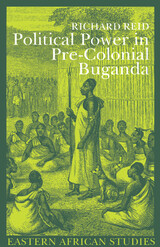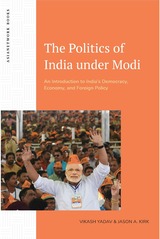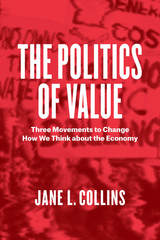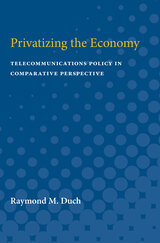10 start with P start with P

Didier Fassin and Marion Fourcade have assembled an eminent team of scholars from across the social sciences, conducting research on six continents, to reflect on the multiple ways the coronavirus has entered, reshaped, or exacerbated existing trends and structures in every part of the globe. The contributors show how the disruptions caused by the pandemic have both hastened the rise of new social divisions and hardened old inequalities and dilemmas. An indispensable volume, Pandemic Exposures provides an illuminating analysis of this watershed moment and its possible aftermath.



Blessed with fertile and well-watered soil, East Africa’s kingdom of Buganda supported a relatively dense population and became a major regional power by the mid-nineteenth century. This complex and fascinating state has also long been in need of a thorough study that cuts through the image of autocracy and military might.
Political Power in Pre-Colonial Buganda explores the material basis of Ganda political power, gives us a new understanding of what Ganda power meant in real terms, and relates the story of how the kingdom used the resources at its disposal to meet the challenges that confronted it. Reid further explains how these same challenges ultimately limited Buganda’s dominance of the East African great lakes region.

These reforms profoundly changed aspects of Central America's politics and society; however, these essays reveal that changes in the region were shaped both internally and externally and that they weakened the region's ties to metropolitan Spain as often as they reinforced them. Contributors focus on specific policy changes and their consequences as well as transformations throughout the region for which no direct Bourbon inspiration appears to be responsible. Together they demonstrate that whether or not the Crown achieved its primary goals of centralization and control, its policies nevertheless provided opportunities for evident, often subtle, and occasionally unintentional shifts in the colonial government's relationship to its constituent populations. Contributors include Christophe Belaubre, Michel Bertrand, Jordana Dym, Jorge H. González, Timothy Hawkins, Sajid Alfredo Herrera, Gustavo Palma, Eugenia Rodriguez, Doug Tompson, and Stephen Webre.

Since the right-wing, Hindu-nationalist government of Narendra Modi’s Bharatiya Janata Party (BJP) came to power at the national level in 2014, and with its consolidation of power in the 2019 general election, India has witnessed a significant realignment of its national politics and a shift toward the right of the political spectrum. The Politics of India under Modi provides a detailed overview of India’s political trends, economic prospects, and international relations in the twenty-first century.
This book is designed as a supplement and update for existing syllabi that trace India’s political economy from the birth of the republic to the quest for economic liberalization and great power status. Undergraduates and scholars interested in India’s foreign policy and political reform will find value in this timely book.
“The subject of this book is extremely compelling and important, as well as timely. BJP rule and the Modi regime, it is now clear, represent some critical turning points in Indian politics, which have yet to be analyzed in depth academically by experts. I see this book as a key first step in this process.”
-Rina Verma Williams, School of Public and International Affairs at the University of Cincinnati

Each case shows how the concrete actions of a group of citizens can prompt us to reflect on what is needed for a just and sustainable economic system. In one case, activists raised questions about the responsibilities of business, in the second about the significance of local economies, and in the third about the contributions of the public sector. Through these movements, Jane L. Collins maps a set of cultural conversations about the types of investments and activities that contribute to the health of the economy. Compelling and persuasive, The Politics of Value offers a new framework for viewing economic value, one grounded in thoughtful assessment of the social division of labor and the relationship of the state and the market to civil society.

Several stark premises have long prevailed in our approach to Russian history. It was commonly assumed that Russia had always labored under a highly centralized and autocratic imperial state. The responsibility for this lamentable state of affairs was ultimately assigned to the profoundly agrarian character of Russian society. The countryside, home to the overwhelming majority of the nation’s population, was considered a harsh world of cruel landowners and ignorant peasants, and a strong hand was required for such a crude society.
A number of significant conclusions flowed from this understanding. Deep and abiding social divisions obstructed the evolution of modernity, as experienced “naturally” in other parts of Europe, so there was no Renaissance or Reformation; merely a derivative Enlightenment; and only a distorted capitalism. And since only despotism could contain these volatile social forces, it followed that the 1917 Revolution was an inevitable explosion resulting from these intolerable contradictions—and so too were the blood-soaked realities of the Soviet regime that came after. In short, the sheer immensity of its provincial backwardness could explain almost everything negative about the course of Russian history.
This book undermines these preconceptions. Through her close study of the province of Nizhnii Novgorod in the nineteenth century, Catherine Evtuhov demonstrates how nearly everything we thought we knew about the dynamics of Russian
society was wrong. Instead of peasants ground down by poverty and ignorance, we find skilled farmers, talented artisans and craftsmen, and enterprising tradespeople. Instead of an exclusively centrally administered state, we discover effective and participatory local government. Instead of pervasive ignorance, we are shown a lively cultural scene and an active middle class. Instead of a defining Russian exceptionalism, we find a world recognizable to any historian of nineteenth-century Europe.
Drawing on a wide range of Russian social, environmental, economic, cultural, and intellectual history, and synthesizing it with deep archival research of the Nizhnii Novgorod province, Evtuhov overturns a simplistic view of the Russian past. Rooted in, but going well beyond, provincial affairs, her book challenges us with an entirely new perspective on Russia’s historical trajectory.


READERS
Browse our collection.
PUBLISHERS
See BiblioVault's publisher services.
STUDENT SERVICES
Files for college accessibility offices.
UChicago Accessibility Resources
home | accessibility | search | about | contact us
BiblioVault ® 2001 - 2024
The University of Chicago Press









